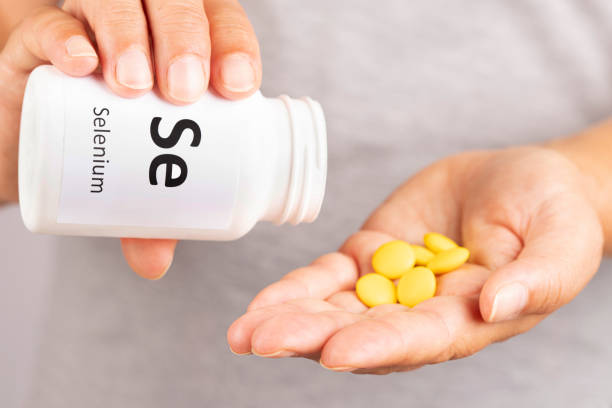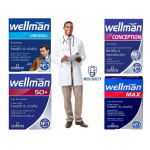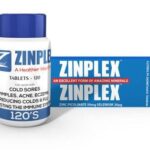Top 8 Selenium Benefits for Women

Selenium is a trace element that plays a vital role in the health and well-being of both men and women. However, women, in particular, can reap numerous benefits from maintaining optimal selenium levels in their bodies. From its influence on fertility and reproductive health to its potential in preventing chronic diseases, selenium is a micronutrient that deserves attention.
In this article, we will explore the various ways selenium benefits women, emphasizing its role in female health, fertility, and overall wellness.
What is Selenium?
Before delving into the specific benefits for women, let’s take a closer look at selenium. Selenium is an essential mineral that the body requires in small amounts. It is classified as a trace element because the body only needs minute quantities, but it is crucial for a wide range of physiological functions. Selenium is mainly obtained through dietary sources, including:
1. Nuts and Seeds: Brazil nuts, sunflower seeds, and flaxseeds are excellent sources of selenium.
2. Seafood: Fish and shellfish, such as tuna, sardines, and shrimp, are rich in selenium.
3. Meat and Poultry: Lean meats and poultry, like chicken and turkey, contain selenium.
4. Dairy Products: Some dairy products, including cheese and yogurt, provide selenium.
5. Grains and Cereals: Whole grains and cereals can contribute to selenium intake.
Selenium is integral to various bodily functions, primarily due to its role in the formation of selenoproteins. These specialized proteins contain selenium in the form of the amino acid selenocysteine and are involved in antioxidant defense, thyroid hormone metabolism, and immune function.
Selenium and Female Health
Now, let’s explore the specific ways in which selenium benefits women’s health:
1. Supports Ovarian Function
Selenium plays a crucial role in female reproductive health. It is involved in the synthesis of DNA, which is essential for the development of healthy ova (eggs) and the overall reproductive process. Adequate selenium levels are important for fertility and the prevention of complications during pregnancy.
Selenium supports normal ovarian function, helping to ensure that ova are of high quality. This is vital for women trying to conceive. Low selenium levels have been associated with reduced fertility and increased risk of miscarriage.
Furthermore, during pregnancy, selenium is essential for the health of both the mother and the developing fetus. It contributes to the proper formation of the fetal brain and nervous system and supports the mother’s immune system. Selenium’s antioxidant properties can help protect against oxidative stress during pregnancy.
2. Regulate the menstrual cycle
The thyroid gland is responsible for regulating metabolism, energy production, and overall hormonal balance. Selenium is crucial for the conversion of thyroid hormones, specifically thyroxine (T4) to its active form, triiodothyronine (T3). Proper thyroid function is essential for maintaining healthy weight and energy levels.
Selenium aids in hormonal balance, helping to regulate the menstrual cycle. Imbalances in thyroid hormones can lead to irregular periods and other menstrual issues. Ensuring sufficient selenium intake may help mitigate these problems.
3. Antioxidant Protection
Selenium is a powerful antioxidant that can help combat oxidative stress and reduce cellular damage. This is particularly important for women, as oxidative stress has been linked to several female-specific health concerns, including breast cancer and gynecological issues.
Selenium’s antioxidant properties may play a role in reducing the risk of breast cancer. Some studies suggest that a diet rich in selenium is associated with a lower incidence of breast cancer, though more research is needed to establish a definitive link.
4. Immune Support
The immune system is essential for overall health, and selenium plays a key role in immune function. It helps the body fight off infections and maintain robust defenses against diseases.
Selenium deficiency can weaken the immune system, making women more susceptible to infections. Adequate selenium intake is crucial for maintaining a strong defense against common illnesses.
5. Cancer Prevention
Selenium’s role as an antioxidant makes it a potential ally in the fight against cancer. Women can benefit from this protective effect, particularly in the context of breast and cervical cancer.
Some studies have suggested that selenium intake is associated with a reduced risk of breast cancer. Antioxidants like selenium help protect against DNA damage and mutations that can lead to cancer.
Selenium has been investigated for its potential to prevent cervical cancer, especially in areas where there is a high prevalence of human papillomavirus (HPV) infection. Combining selenium supplementation with other preventive measures may offer added protection.
6. Heart Health
Heart disease is a significant concern for women, and selenium may play a role in maintaining cardiovascular health. Selenium’s antioxidant properties help prevent the oxidation of low-density lipoprotein (LDL) cholesterol. This is important because oxidized LDL cholesterol can contribute to the development of atherosclerosis, a key risk factor for heart disease.
7. Aging Gracefully
Aging is a natural process, but selenium’s antioxidant effects can help slow down the visible signs of aging. This benefit is relevant to both women and men, but it can be particularly important for women who often face societal pressures regarding their appearance.
Selenium may also help protect the skin from the damaging effects of ultraviolet (UV) radiation and reduce the risk of skin cancer. Additionally, it may contribute to maintaining skin elasticity and preventing premature aging.
8. Mood and Mental Health
Women are more likely to experience mood disorders like depression and anxiety. Selenium’s influence on mood and mental health is noteworthy. Selenium contributes to mood regulation by supporting the production of serotonin, a neurotransmitter that plays a key role in mood and well-being. Adequate selenium levels may help reduce the risk of mood disorders.
Daily Selenium Requirements for Women
To experience the various benefits of selenium, it’s essential to ensure you’re meeting your daily selenium requirements. The Recommended Dietary Allowance (RDA) for selenium can vary slightly depending on age, but for most adult women, it falls within the range of 55 to 70 micrograms (mcg) per day. During pregnancy and breastfeeding, the RDA may increase.
Selenium can be obtained through dietary sources, including nuts, seeds, seafood, lean meats, and whole grains. It’s usually possible to meet your selenium needs through a balanced diet. However, in some cases, supplementation may be necessary, especially if you have specific health concerns or dietary restrictions.
Selenium Deficiency and Excess
Selenium deficiency can have adverse effects on health, while excess selenium intake can be harmful. Therefore, it’s crucial to strike a balance and aim for optimal selenium levels.
Selenium Deficiency
Selenium deficiency is rare in many developed countries where dietary diversity is common. However, certain regions with low selenium content in the soil may experience a higher prevalence of deficiency. The symptoms of selenium deficiency can include:
• Muscle weakness
• Fatigue
• Hair loss
• Reduced immune function
• Cognitive decline
Selenium Excess
Consuming excessively high levels of selenium can lead to selenosis, a condition characterized by symptoms such as:
• Gastrointestinal disturbances
• Garlic odor on the breath
• Nausea
• Hair loss
• Skin rashes
It’s important to note that selenosis is rare and typically occurs only with extreme overconsumption of selenium supplements.
Incorporating Selenium into Your Diet
To ensure that you’re getting the benefits of selenium in your diet, consider the following tips:
1. Diverse Diet: Consume a variety of selenium-rich foods, such as nuts, seeds, seafood, and lean meats, to provide your body with this essential mineral.
2. Brazil Nuts: A few Brazil nuts can provide your daily selenium requirements. However, don’t overindulge, as excessive selenium intake can lead to selenosis.
3. Supplements: If you have dietary restrictions, live in a selenium-deficient region, or have specific health concerns, consult with a healthcare professional to determine if selenium supplements are appropriate for you.
4. Balanced Nutrition: Maintain a balanced and nutritious diet that includes all essential vitamins and minerals, in addition to selenium, for optimal health.
Conclusion
Selenium is an essential trace element that offers a range of benefits for women. From supporting reproductive health and reducing the risk of chronic diseases to enhancing mood and mental well-being, selenium plays a crucial role in overall female health. Maintaining a balanced diet that includes selenium-rich foods is a practical way to ensure you receive these benefits. However, it’s important to be mindful of potential deficiency or excess and to seek professional guidance when needed. By harnessing the power of selenium, women can promote their long-term health, vitality, and well-being.





